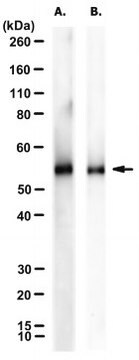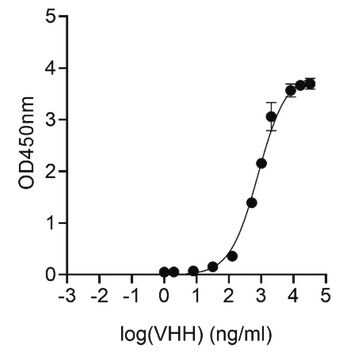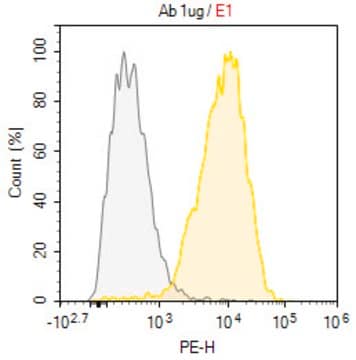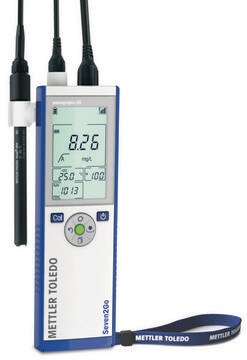MABN2402
Anti-Tau Antibody, clone 10C5
Synonyme(s) :
MAPTL, MTBT1, Neurofibrillary tangle protein, PR-1, Paired helical filament-tau (PHF-tau), TAU
About This Item
Produits recommandés
Source biologique
mouse
Niveau de qualité
Forme d'anticorps
purified antibody
Type de produit anticorps
primary antibodies
Clone
10C5, monoclonal
Poids mol.
calculated mol wt 79 kDa
observed mol wt ~57 kDa
Produit purifié par
using protein G
Espèces réactives
human, mouse
Conditionnement
antibody small pack of 100
Technique(s)
ELISA: suitable
immunohistochemistry: suitable
western blot: suitable
Isotype
IgG2bκ
Séquence de l'épitope
N-terminal half
Numéro d'accès Protein ID
Numéro d'accès UniProt
Température de stockage
2-8°C
Informations sur le gène
human ... MAPT(4137)
Spécificité
Immunogène
Application
Evaluated by Western Blotting with His-tagged, Human recombinant Tau, isoform 1N4R. Western Blotting Analysis: A 1:1,000 dilution of this antibody detected His-tagged, Human, recombinant Tau isoform 1N4R.
Tested Applications
Enzyme Immunoassay (ELISA): Serial dilutions from a representative lot detected Tau monomers or Tau aggregates induced with arachidonic acid in ELISA (Courtesy of Nicholas Kanaan, Ph.D., Michigan State University, USA).
Western Blotting Analysis: A representative lot detected recombinant, human Tau isoform 2N4R monomers and aggregates, 2N3R monomers and aggregates, and mouse Tau monomers. (Courtesy of Nicholas Kanaan, Ph.D., Michigan State University, USA).
Immunohistochemistry Applications: A representative lot detected Tau in Alzheimer′s diseased (AD) brain (superior temporal cortex, STG) tissue sections. Human disease sections had to be treated with phosphatase (dephosphorylates tau) to obtain reactivity suggesting tau in human AD is phosphorylated at its epitope. (Courtesy of Nicholas Kanaan, Ph.D., Michigan State University, USA).
Note: Actual optimal working dilutions must be determined by end user as specimens, and experimental conditions may vary with the end user.
Description de la cible
Forme physique
Reconstitution
Stockage et stabilité
Autres remarques
Clause de non-responsabilité
Vous ne trouvez pas le bon produit ?
Essayez notre Outil de sélection de produits.
Code de la classe de stockage
10 - Combustible liquids
Classe de danger pour l'eau (WGK)
WGK 1
Point d'éclair (°F)
Not applicable
Point d'éclair (°C)
Not applicable
Certificats d'analyse (COA)
Recherchez un Certificats d'analyse (COA) en saisissant le numéro de lot du produit. Les numéros de lot figurent sur l'étiquette du produit après les mots "Lot" ou "Batch".
Déjà en possession de ce produit ?
Retrouvez la documentation relative aux produits que vous avez récemment achetés dans la Bibliothèque de documents.
Notre équipe de scientifiques dispose d'une expérience dans tous les secteurs de la recherche, notamment en sciences de la vie, science des matériaux, synthèse chimique, chromatographie, analyse et dans de nombreux autres domaines..
Contacter notre Service technique








